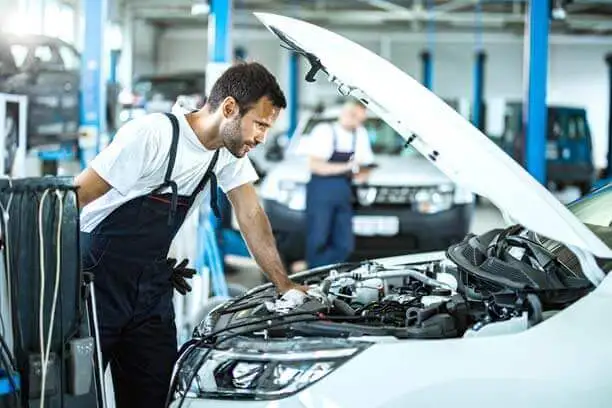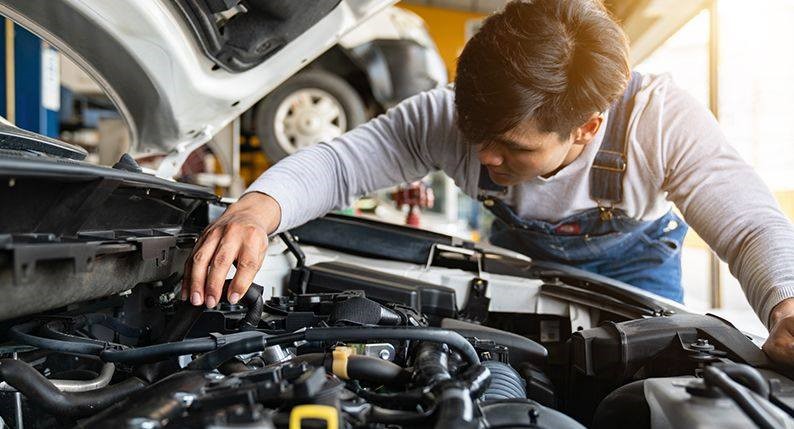All Categories
Featured
When your car gets too hot, it can seem like a major emergency situation, yet remaining calm and following the right steps can stop significant engine damages and aid obtain you back when driving safely. In this post, we'll explore what to do if your automobile overheats and use preventative ideas to decrease the risk of overheating in the future.
What to Do If Your Car Gets too hot. Pull Over to a Safe Area The initial and essential action if your cars and truck starts to get too hot is to draw over to a secure spot as quickly as possible. Activate your threat lights and assist your vehicle to the shoulder or right into a parking great deal. Keeping your car running while it's overheated can create extreme damages to the engine, so it's critical to shut the engine off right away.
Let the Engine Cool Once you have actually securely quit, permit the engine to cool off. You must never ever attempt to open up the radiator cap while the engine is still hot, as the launch of steam or warm coolant can create burns. Wait at the very least 15-20 mins to permit the engine temperature level to drop to a more secure degree before proceeding.
![]()
Check the Coolant Degree After the engine has cooled, examine the coolant levels by examining the storage tank or radiator. If it's reduced, leading it off with a mixture of coolant and water (as defined by your automobile's supplier) Constantly make use of caution when opening up the coolant storage tank, as stress might have developed.
Seek Noticeable Leaks While you wait on the engine to cool, visually examine the radiator, pipes, and coolant tank for any noticeable leakages or cracks. A leaking radiator or hose pipe is a typical source of overheating. It's far better to call a tow solution than risk driving further and causing extra damages. if you locate a substantial leak.
Reboot the Engine After enabling the engine to cool and guaranteeing the coolant is topped off, start the engine and check the temperature level scale. If the temperature proceeds to increase rapidly, it's finest to shut the engine off and require roadside help or a tow to the local auto mechanic.
![]()
Exactly How to Protect Against Overheating in the Future. Regularly Examine Coolant Degrees Among the simplest methods to avoid overheating is by preserving the right degree of coolant. Gradually, coolant can vaporize, so regularly examine the coolant levels in the storage tank. Low coolant degrees can create the engine to get too hot swiftly, so top it off as needed.
Inspect the Radiator The radiator plays an important duty in keeping the engine cool. Regularly examine the radiator for any blockages, dust, or debris that might obstruct air movement. If you discover any indications of damages, such as rust or leakages, have it repaired or replaced as soon as feasible.
The thermostat manages the flow of coolant, while the water pump circulates it via the engine. If either component is damaged, it can stop correct air conditioning.
Flush the Cooling System With time, coolant can degrade and come to be ineffective, creating a buildup of particles in the system. Purging the cooling system every 30,000 miles, or as advised in your automobile's manual, helps to eliminate any kind of sludge or accumulation and makes sure the cooling system is working correctly.
Screen the Condition of the Hoses The pipes in your automobile's air conditioning system can wear out or crack in time. Check the tubes for any indications of wear, such as protruding, cracks, or leakages, and replace them if needed. Stopping coolant leaks can go a long way in avoiding getting too hot.
![]()
Drive Properly Hostile driving, such as increasing swiftly or driving at broadband, puts extra strain on your engine and its cooling system. Attempt to drive at modest rates, specifically on hot days or when driving on high slopes, to minimize the chances of getting too hot.
Stay Clear Of Overwhelming Your Car Carrying extreme weight in your car puts stress and anxiety on the engine and cooling system. Constantly bear in mind your car's weight limit, specifically if you're hauling heavy tons, pulling a trailer, or driving cross countries in heat.
Conclusion. An overheating car can be a frightening experience, however understanding how to respond and prevent it can save you time, money, and possible engine damage. Always check your coolant levels, inspect vital elements like the radiator, thermostat, and pipes, and comply with a normal upkeep routine. By staying on top of your automobile's cooling system, you can decrease the risk of getting too hot and appreciate a smoother, safer driving experience.
What to Do If Your Car Gets too hot. Pull Over to a Safe Area The initial and essential action if your cars and truck starts to get too hot is to draw over to a secure spot as quickly as possible. Activate your threat lights and assist your vehicle to the shoulder or right into a parking great deal. Keeping your car running while it's overheated can create extreme damages to the engine, so it's critical to shut the engine off right away.
Let the Engine Cool Once you have actually securely quit, permit the engine to cool off. You must never ever attempt to open up the radiator cap while the engine is still hot, as the launch of steam or warm coolant can create burns. Wait at the very least 15-20 mins to permit the engine temperature level to drop to a more secure degree before proceeding.

Check the Coolant Degree After the engine has cooled, examine the coolant levels by examining the storage tank or radiator. If it's reduced, leading it off with a mixture of coolant and water (as defined by your automobile's supplier) Constantly make use of caution when opening up the coolant storage tank, as stress might have developed.
Seek Noticeable Leaks While you wait on the engine to cool, visually examine the radiator, pipes, and coolant tank for any noticeable leakages or cracks. A leaking radiator or hose pipe is a typical source of overheating. It's far better to call a tow solution than risk driving further and causing extra damages. if you locate a substantial leak.
Reboot the Engine After enabling the engine to cool and guaranteeing the coolant is topped off, start the engine and check the temperature level scale. If the temperature proceeds to increase rapidly, it's finest to shut the engine off and require roadside help or a tow to the local auto mechanic.

Exactly How to Protect Against Overheating in the Future. Regularly Examine Coolant Degrees Among the simplest methods to avoid overheating is by preserving the right degree of coolant. Gradually, coolant can vaporize, so regularly examine the coolant levels in the storage tank. Low coolant degrees can create the engine to get too hot swiftly, so top it off as needed.
Inspect the Radiator The radiator plays an important duty in keeping the engine cool. Regularly examine the radiator for any blockages, dust, or debris that might obstruct air movement. If you discover any indications of damages, such as rust or leakages, have it repaired or replaced as soon as feasible.
The thermostat manages the flow of coolant, while the water pump circulates it via the engine. If either component is damaged, it can stop correct air conditioning.
Flush the Cooling System With time, coolant can degrade and come to be ineffective, creating a buildup of particles in the system. Purging the cooling system every 30,000 miles, or as advised in your automobile's manual, helps to eliminate any kind of sludge or accumulation and makes sure the cooling system is working correctly.
Screen the Condition of the Hoses The pipes in your automobile's air conditioning system can wear out or crack in time. Check the tubes for any indications of wear, such as protruding, cracks, or leakages, and replace them if needed. Stopping coolant leaks can go a long way in avoiding getting too hot.

Drive Properly Hostile driving, such as increasing swiftly or driving at broadband, puts extra strain on your engine and its cooling system. Attempt to drive at modest rates, specifically on hot days or when driving on high slopes, to minimize the chances of getting too hot.
Stay Clear Of Overwhelming Your Car Carrying extreme weight in your car puts stress and anxiety on the engine and cooling system. Constantly bear in mind your car's weight limit, specifically if you're hauling heavy tons, pulling a trailer, or driving cross countries in heat.
Conclusion. An overheating car can be a frightening experience, however understanding how to respond and prevent it can save you time, money, and possible engine damage. Always check your coolant levels, inspect vital elements like the radiator, thermostat, and pipes, and comply with a normal upkeep routine. By staying on top of your automobile's cooling system, you can decrease the risk of getting too hot and appreciate a smoother, safer driving experience.
Latest Posts
Check Out the Leading Auto Repair Coupons in Montclare, Chicago
Published May 28, 25
1 min read
Expert Residential Roof Solutions You Can Trust
Published May 23, 25
1 min read
Discover Limited-Time Auto Repair Specials in Chicago at Montclare Auto Repair
Published May 23, 25
1 min read
More
Latest Posts
Check Out the Leading Auto Repair Coupons in Montclare, Chicago
Published May 28, 25
1 min read
Expert Residential Roof Solutions You Can Trust
Published May 23, 25
1 min read
Discover Limited-Time Auto Repair Specials in Chicago at Montclare Auto Repair
Published May 23, 25
1 min read